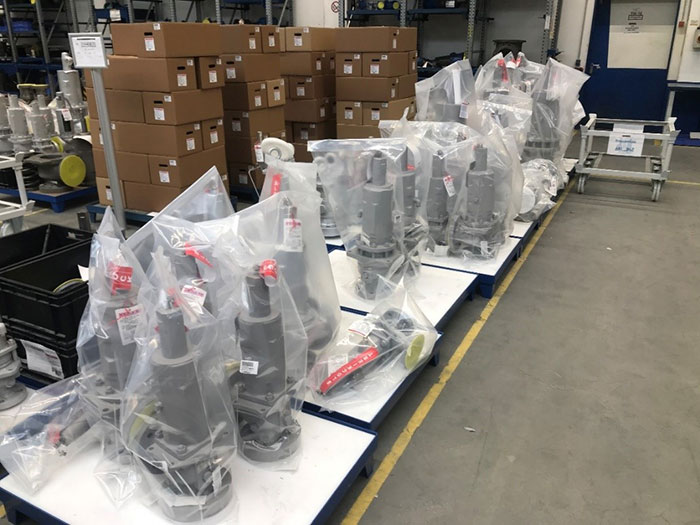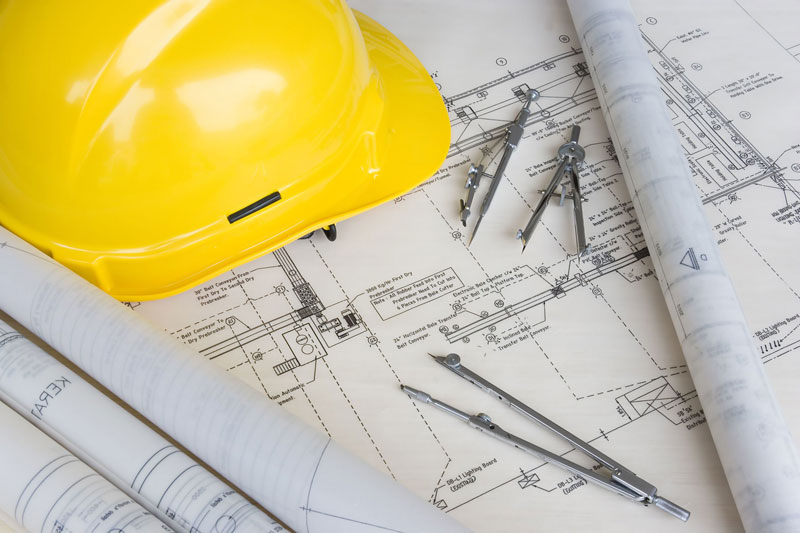Pre-shipment Inspection (PSI)
Quality control is crucial for you to avoid losses and reputational damage due to defective products. Exporters and manufacturers also need quality control to comply with regulations set by government agencies and avoid legal issues. The most important step in the quality control process is pre-shipment inspection (PSI). Pre-shipment inspections include both Quantity and Quality site inspections. Quantity ones ensure that outgoing/incoming goods’ quantities effectively correspond to those indicated in the transport documents, while the Quality inspections ensure that the goods have not suffered any visual defects during the carriage and meet the requirements outlined in the related documents.
Arotec Inspection Partner GmbH provides pre-shipment inspection (PSI) services to its customers which are offered before shipping to ascertain the quality, quantity, and volumetric size of newly manufactured goods. Our specially trained inspectors can arrange it at the manufacturer’s warehouse or when the supplier prepares the final shipment for sale. We provide this service for manufacturing companies, agricultural products exporters, trading companies, final customers’ purchasing offices, food aid organizations, banks, and insurance companies.
In this article, we are going to show you how professionally we provide you with pre-shipment inspection (PSI) in Arotec Inspection Partner. In order for that, we need to first explain to you what is a pre-shipment inspection service and how does it work, why pre-shipment inspection is important and why the customers need this service, what are the main factors and steps of a comprehensive pre-shipment inspection procedure and how it is run, and what types of pre-shipment inspection services we offer you in Arotec Inspection Partner. Then we will explicate what are the benefits and advantages of assigning a pre-shipment inspection (PSI) to the Arotec Inspection Partner and why you will be satisfied by having your PSI jobs been performed by our experts. Eventually, we will be mentioning the crucial and necessary documents and certificates that should be issued as a result of a pre-shipment inspection.
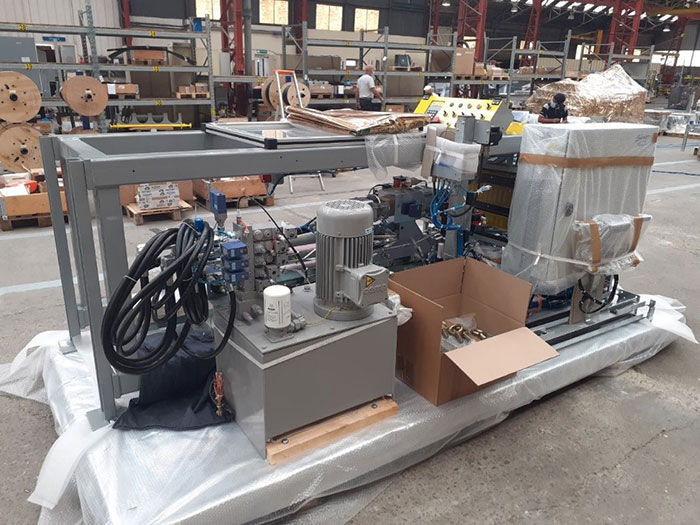
1- What is a Pre-Shipment Inspection?
Pre-shipment inspection (PSI) is a part of the supply chain management and an important method of quality control for assessing the quality of the goods that the buyers buy from the suppliers. Pre-shipment inspection is taken by buyers, suppliers, agencies, and other trade operators to ascertain the conformity of newly manufactured products before shipping for export or import. In this systematic procedure, the inspecting company samples the goods randomly for the tests so as to determine whether the manufactured goods for export or import meet the requirements in regards to the quantity, quality standards, specifications, and regulations.
Pre-shipment inspection is a step in freight shipping that allows you to fix any issues without receiving and paying for the product; since inspectors examine items before shipping, you can hold the final payment until you get the report. These procedures only occur once 100% of the ordered units are produced, but can sometimes be done in multiple stages during the production and it is usually done when at least 80% of the orders are produced and packed to eliminate the risk of only checking cherry-picked samples.
Comprehensive pre-shipment inspections are generally conducted before the products are shipped to clients and in the manufacturer’s premises or at the harbor on samples randomly selected which must adhere to the defined statistical sampling procedure according to internationally recognized ANSI/ASQC Z1.4 (ISO 2859-1) or otherwise agreed with the customer and the inspectors use the AQL sample size selected randomly from all batches in the order to perform inspection activities with acceptance criteria mainly focusing on type identification, product conformity, functionality, performance, safety, durability, quality (consistent workmanship), appearance, marking, dimension, quantity, packaging, unit completeness and compliance with the agreed specification.
Inspection services agencies that secure PSI are certified following the Agreement on Pre-Shipment Inspection, introduced by the World Trade Organization in 1994. The bulk of the regulations was created with developing countries in mind, but the guidelines are universally used to this day. According to this agreement:
- The procedure should be non-discriminatory
- Pre-shipment investigations should not cause delays
- Pre-shipment inspection should be transparent
- All sensitive commercial and business information should be protected during the procedure
- There should be no conflict of interest between the agency, the production company under examination, and the client
- The price of the inspected goods should not be unjustifiably higher or lower than the market average
- Appeals can be filed under the rules of the Agreement
- Inspections are not provided for shipments below the minimum value established by the agency (each agency can set its minimal values for different categories of products)
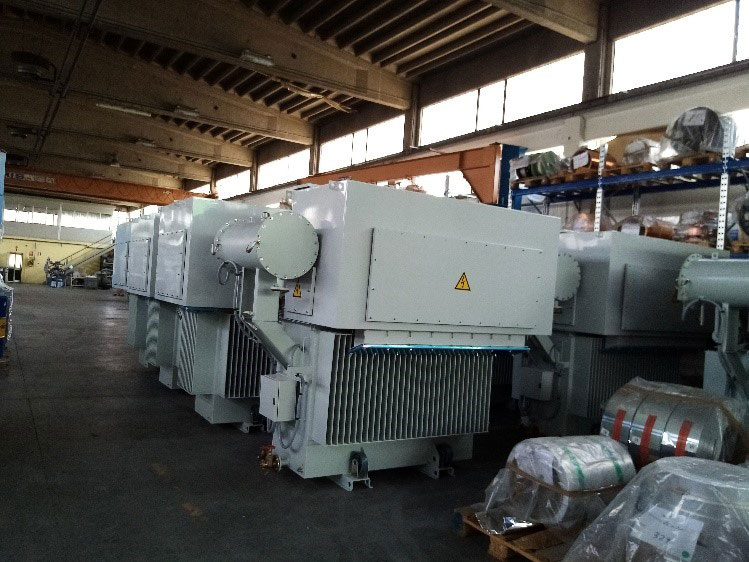
2- Why Pre-shipment Inspection Is Important? Why do you need Pre-Shipment Inspections?
Pre-shipment inspection maintains your brand image in front of the regulators and definitely, your clients. PSI inspection helps you in avoiding supply-chain bottlenecks, fines due to regulatory violations, and importantly, unsatisfied customers. Since the regulatory requirements around the world change vary from region to region, it can get difficult for an organization to keep track of the latest regulations regarding the shipment of their products. Meanwhile, a pre-shipment inspection can greatly help in keeping your shipment in line with the latest regulations.
Inspection of manufactured products before they are shipped is time-sensitive and complex. Since its introduction in 1994, PSI has been guided by the Agreement on Pre-Shipment Inspection and other agreements under the World Trade Organization (WTO). These agreements seek to improve international trade standards and include several obligations that guide PSI inspectors. This is why you need to hire certified experts guided by non-discrimination, transparency, confidentiality, and other principles stipulated in the agreements.
Also, regulatory requirements are dynamic and vary depending on the product and the destination market. QC professionals like Arotec Inspection Partner are always up-to-date on the latest regulations in different regions globally. They can help you ensure your shipment complies with the latest and most appropriate product quality regulations. To evaluate every item during product inspection, QC experts use a pre-shipment inspection checklist.
Here are a few ways pre-shipment inspection greatly benefits your business:
- It helps you avoid any last-minute hassles
- Helps in avoiding expensive reworks and last-minute delays
- Helps in avoiding fines by fulfilling all regulatory requirements
- Helps in maintaining your brand image by ensuring the delivery of high-quality products to your clients PSI inspection avoid misrouting/misplacement of your products
- PSI inspection avoid misrouting/misplacement of your products
The advantages of the pre-shipment inspection
- This inspection helps to diminish the risk of receiving incompatible goods of low quality.
- This inspection simplifies the quality assessment of the goods during production and the needed modifications for the exporters.
- After the inspection, the exporters receive the pre-shipment inspection certificate. This certificate is compulsory in some countries for custom clearance and it is also among the vital documents to be submitted to the bank for the use of the letter of credit to release the money.
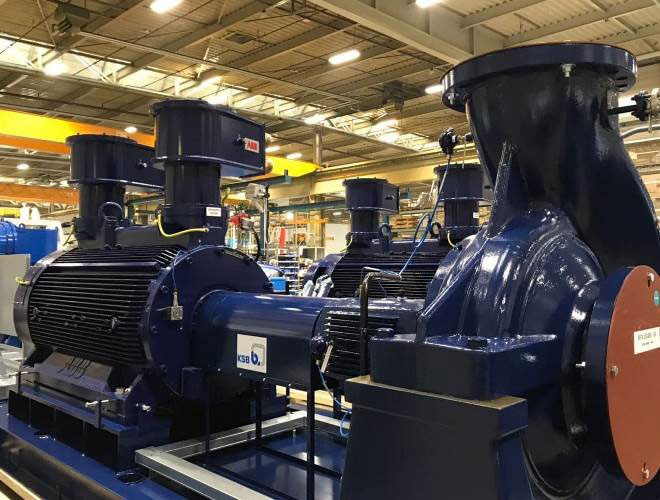
Pre-shipment Inspection of centrifugal pumps including Visual, Dimensional, Workmanship, Qty Painting, etc. checks
3- What are the Main Steps of the Pre-Shipment Inspection Procedure?
Pre-shipment inspection jobs by Arotec Inspection Partner company cover various characteristics and requirements such as functionality, performance, durability, appearance, and dimensions. PSI services by our company check the quantity and quality of the products, conformity to safety requirements, and ensure there are no rejectable defects. We issue accurate and unbiased inspection reports and certificates based on the findings. To fulfill the core purposes of the inspection, our experts use the pre-shipment inspection procedure with essential steps that some of them are explained hereunder:
a- Order Placement
Although some categories, like medical equipment, require inspections, it is an optional step in the shipment process for most of the common goods. Usually, such a check is ordered by a client who wants to have better quality control over his products. The shipment inspection takes place at the manufacturer’s or supplier’s warehouse or production house. Off-site inspections can be arranged only for items that require special handling, such as toxic substances.
b- On-Site Inspection Visit
When there are no complications, pre-shipment inspections are generally straightforward. This step includes visiting the production site or factory. On-site visit for pre-shipment inspection is conducted when production is completed 100%, and at least 80% of the client’s order has been packed and ready for shipping.
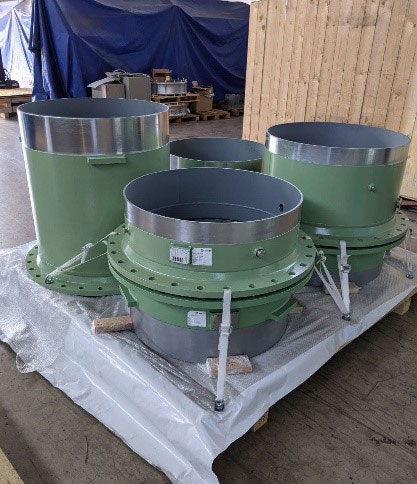
Pre-shipment inspection of Pipe Connections that are ready for packing and shipping
c- Quantity Verification
The inspectors focus on verifying the number of boxes and products is correct and conforms to the total number of units ordered. This step also includes verifying whether the units in each shipping carton are correct based on the client’s requirement. The packaging, labeling, destination, and integrity of the boxes are also verified in this step with a focus on safe transportation. If the client has several outlets in different locations or countries, the inspector can ensure that the correct number of products are packed for each outlet.
d- Random Selection
To ensure the accuracy of pre-shipment inspections, the inspector uses Acceptance Quality Limit (AQL) defined under ISO 2859-1 (ANSI/ASQC Z1.4). This statistical sampling procedure is internationally accepted for PSI inspections. The sample size for inspection is determined by AQL standards and the total number of units in a batch or order. The AQL defines the acceptable number of defects in a batch. Any batch with more than the acceptable number of defects is rejected and marked as a fail by the inspector.
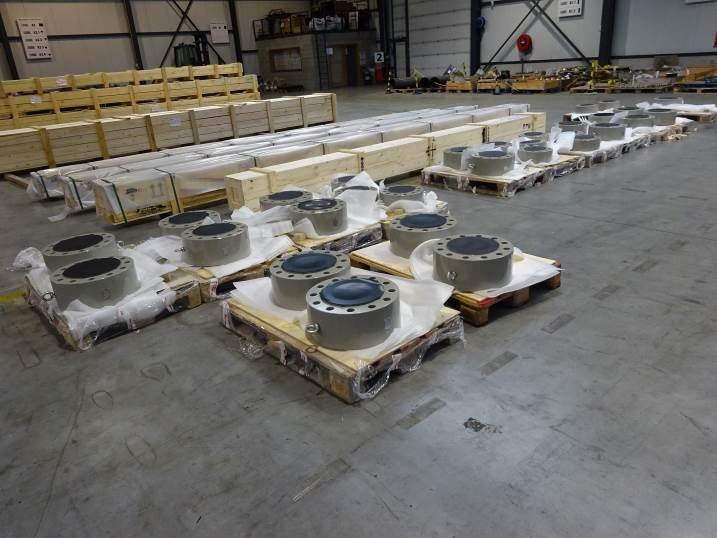
Final and Pre-shipment Inspection of Wafer Type Check Valves Parts with Random Check
e- Conformity Verification
PSI inspection also seeks to verify the conformity of the manufactured to physical specifications like height, width, length, color, weight, markings, and labeling with the client’s specified ones. But these specifications are not rigid. They vary depending on the nature of the product under inspection. Packaging and labeling of boxes are also important. This step can also include looking at both potential mechanical damage and flaws in the production (e.g., missing screws or gaps between the parts).
f- Function Test
The sample is taken through a rigorous test to determine whether it passes the safety test. Inspectors also focus on surfacing invisible defects that may impede the product from functioning as intended. The strategies used in this step vary widely depending on the product.
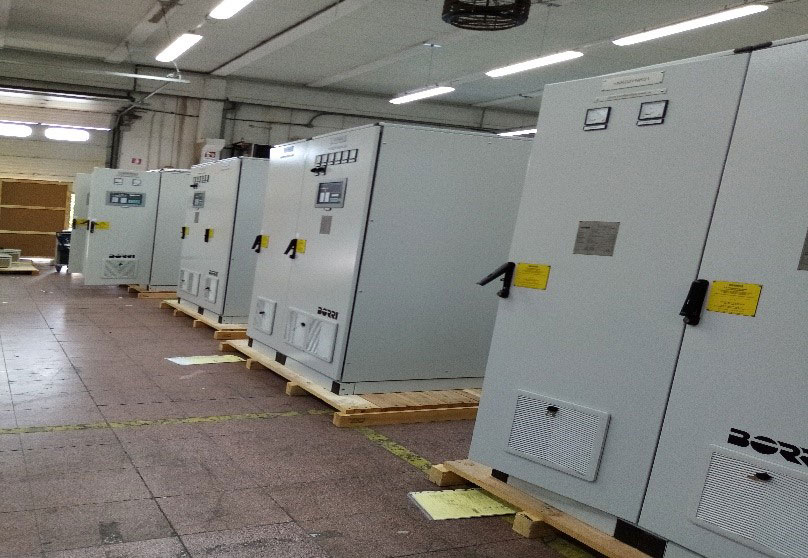
Final and Pre-shipment Inspection of Charging panel, Distribution Boards
g- Safety test
One of the most critical stages in the pre-shipment inspection, especially when the shipment in question has electronic products, is safety testing. This step consists of two parts: checks for mechanical safety and electrical safety.
The first step shows any mechanical hazards, like sharp edges or moving parts, that are stuck and can cause accidents. The latter is more complex and is rarely done on-site since electrical testing requires laboratory-grade equipment and conditions.
During the electrical safety inspection, experts test electronic products in search of hazards like gaps in ground continuity or faults of the power elements. Inspectors also check the certification labeling (UL, CE, BSI, CSA, etc.) for the destination market and ensure all electronic parts are up to standard.
The products must pass all tests before they are certified and marked with country-specific labels depending on the destination market.
h- Cosmetic and Workmanship Check
The pre-shipment inspection will check for three different types of defects categorized into major, minor, and critical defects. A randomly selected sample is inspected for any visible defects regarded as the workmanship check. The inspector makes a pass or a fail decision based on predetermined tolerance levels.
i- Inspection Report
The inspectors compile several pre-shipment inspection procedure certificates and reports during and after the completion of product inspection. Pre-shipment inspection certificates and reports convey the balanced and unbiased findings of the inspectors. They verify whether the goods are inspected to conform to the specifications stated in the contract between the seller and buyer. Information gathered in the inspection report should will all the failed and passed tests, relevant findings, and optional comments from the inspector. This report can be used in the case of any disputes with the manufacturer.
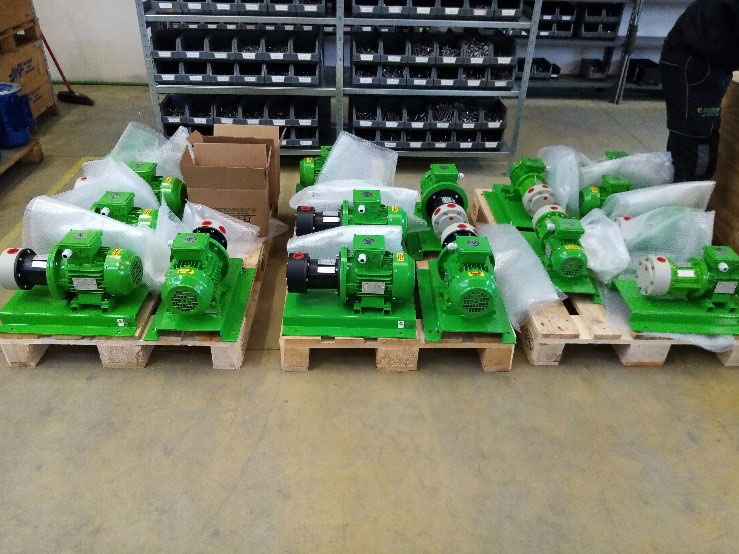
4- Type of Services Pre-Shipment Inspection (PSI) by Arotec Inspection Partner
As your partner for process excellence, we provide a variety of testing and inspection services customized to your needs and look after your interests on-site at a local level. Upon request, we can also take over end-to-end scheduling and project control on your behalf. The services include:
- In-line inspection – Focuses on controlling the quality of products by inspecting the production line/raw materials to identify potential problems that may result in defective end products. It is based on a ‘bottom-up’ or deductive approach.
- Initial Production Inspection (IPI) – Conducted at the beginning of the production cycle, when up to 20% of goods are produced. It is based on a top-down or inductive approach, which first inspects the end products and then traces back any problems to the production line and raw materials.
- During Production Inspection (DUPRO) – Also based on a top-down approach, occurs when the product cycle is about 20- 40% complete and product packing has started.
- Final Random Inspection (FRI) – When the total consignment is completed and packed; a detailed inspection of randomly selected samples is carried out to check the quality, quantity, and packaging conformity as per samples and specifications.
- Construction check – AROTEC inspection experts perform a safety check on your products in the run-up to production to help you avoid time-consuming delays in delivery or costly rework. Within the scope of this examination, we check whether the correct components are being used in order to ensure long-term quality. The design check also provides important information for pre-shipment inspections.
- Loading supervisions – AROTEC inspection experts monitor the loading of goods on your behalf. We also inspect the condition of containers and verify the identity and quantity of goods. This enables us to initiate optimization measures on the spot, if necessary.
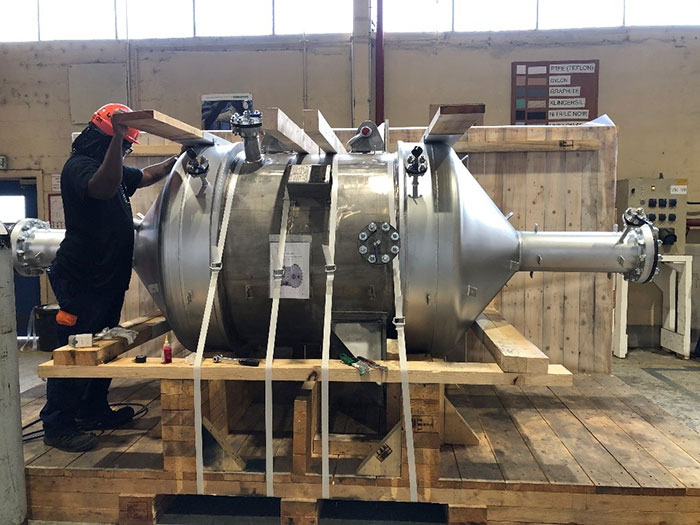
5- What are the benefits of conceding pre-shipment inspection (PSI) services to Arotec Inspection Partner?
Arotec Inspection Partner pre-shipment inspection (PSI) services maximize duty collections. By undertaking duty assessment in the country of export, importers have no opportunity to pressurize customs to assign lower rates.
Compliance with the World Trade Organization (WTO) Agreement on Customs Valuation is now mandatory for all members. Without pre-shipment inspection, countries introducing the Agreement inevitably experience a reduction in revenue collections. Arotec Inspection Partner ensures that the agreement is fully implemented as required by the WTO, and in a way that maintains duty revenue collections.
- Trade facilitation
inefficient customs administrations and the failure of importers to comply with import procedures can both delay trade. A pre-shipment inspection certificate ensures rapid customs clearance, by undertaking the necessary physical and documentary inspections before the consignment is dispatched.
Arotec Inspection Partner pre-shipment inspection (PSI) services deter capital flight in countries where exchange controls exist by preventing deliberately inflated invoicing. This can deplete foreign exchange reserves, which can also reduce the taxable income declared by multinational companies. Our PSI services will also remarkably reduce the incidence of illegal imports, such as radioactive waste, by inspecting shipments in the country of export before dispatch.
As a PSI program takes effect, so a vast database of vital trade information is created, which can be supplied to the Client Government in a variety of formats, as an aid to economic decision making and to induce confidence in donors
- Specialized and Experienced QC experts and inspectors
Arotec Inspection Partner devises only the most experienced inspectors for the task. All of our inspectors are trained on the various regulations that are used in major export hubs around the world. As such these inspectors keep in mind the regulations of your target country and their custom control while carrying out different types of pre-shipment inspection jobs. This gives you an extra advantage of having the PSI conducted by experienced professionals who understand the ins and outs of the country your products are being shipped to.
- Thorough and Meticulous Processes
Furthermore, we have developed strong and thorough processes for our inspectors that encourage them to be methodical during the pre-shipment inspection. This technique ensures that no detail, minute as it might be, is overlooked. Also, Arotec Inspection Partner works at regularly updating the checklists according to the changes in regulations if any, in the regulations of the target countries. In addition, each of our checklists is customized based on the requirements of your customers which makes it a thorough net for any discrepancy to be overlooked.
- Detailed Inspection Reports Supported by Rigorous Evidence
Arotec Inspection Partner believes in technology and thus uses the latest means available to make the pre-shipment inspection report as vivid and self-explanatory as possible. The pre-shipment inspection report is structured and backed with images to help you zero in on the discrepancies. Plus, our structured approach helps you to easily reference to your vendors the shortcomings to improve on.
- Active and Effective Communication
We at Arotec Inspection Partner are eager to listen to your issues. Since, we believe that until we listen to what you have to say, we won’t be able to provide the best of our services. Thus, you can contact us via any of the available means and open up to us about your problems and how we can improve our approach while working on your project. Also, we encourage your comments and feedback on how you want Arotec Inspection Partner to proceed with your project, if there are any special areas that you want to be inspected during PSI, any shortcomings that you are already aware of, etc. We would love to listen and that is what makes us different from other inspection services and solutions companies.
- Involved Method
And last but not least, while carrying out the Pre-shipment inspection, we feel that we are inspecting our shipment. Thus, we will also review the areas that we think are usual suspects and need to be inspected.
To sum up, with Arotec Inspection Partner you can sleep easy while we work on your Pre-shipment inspection and let you know how to iron out any issues that will make the shipment a success, every time, all the time.
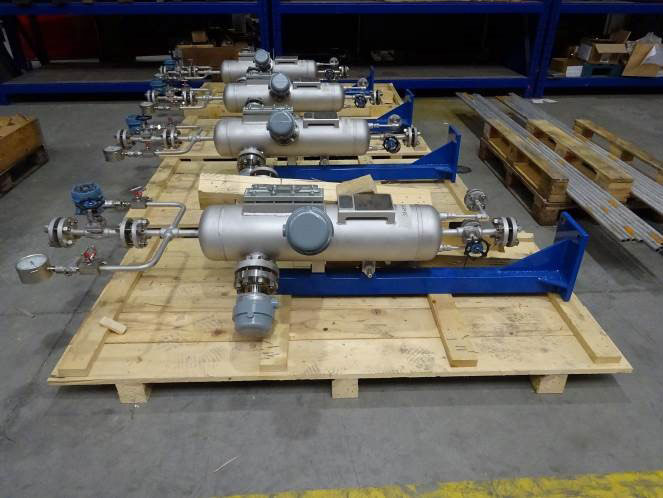
6- What kind of documents are issued for a Pre-shipment Inspection?
In international trading, clients search the guarantee on the conformity of the ordered goods; suppliers seek the certainty to release payments by documentary credit or documentary remittance, and Governments safeguard national interests against fraud and import of substandard or prohibited goods. These are the main goals of pre-shipment inspections which are usually involved with the below documents:
- letters of credit
- customer orders
- pro-forma invoices
- customer-approved packing lists
- technical documentation.
Arotec Inspection Partner quality control inspectors compile a comprehensive inspection report considering the results of which our TPIA partners issue pre-shipment inspection certificates based on the findings of the assessment of each criterion. Inspection reports visualize and explain the quality control process while inspection certificates verify whether the batches of products inspected conform to the specifications in the sale contract with a pass or fail. In most countries, local custom departments require pre-shipment inspection certificates to allow entry of imported goods as a measure to protect the health and safety of consumers. Whether you are exporting or importing, pre-shipment inspections offer a wide range of benefits and should be prioritized.
Pre-shipment Inspection Checklist
During pre-shipment inspection services held by Arotec Inspection Partner quality control inspectors, PSI checklists are used by inspectors to visualize the items to evaluate during the inspection. They are based on the specifications on the sale contract between the buyer and seller in the transaction like importers and manufacturers, exporters and suppliers, or importers and their suppliers. A pre-shipment inspection checklist guides the inspector on the conformities to evaluate, which can include the quality of products, quantity, visible defects, labeling, and packaging. It also highlights the tests to be carried out during the inspection, like safety and usability. The items and tests vary depending on the product and the specifications in the contract. But each item and test are important in the quality control process and should be checked accordingly. QC experts like Arotec Inspection Partner use a methodological pre-shipment inspection procedure.
Pre-Shipment Inspection Report
Arotec Inspection Partner inspectors issue PSI inspection reports that are high in quality, well-prepared and elaborated, backed with details, and including all parts of the inspection. It explains the findings of pre-shipment inspection performed before the production of batches of products is complete. We send the pre-shipment inspection reports to our buyers to countercheck whether the manufactured batches conform to agreed-upon specifications. If the batch fails the inspection or certain regulations, the inspector compiles a PSI report with a detailed account of inspection and an overview of the findings.
The inspection reports published by Arotec Inspection Partner inspectors include images to visualize the defects discovered, explaining where the products failed to meet specifications. The PSI report is attached to the documents for the shipment, like the bill of lading, and accompanies the shipment from the factory to the client. The inspectors then issue a pre-shipment inspection certificate.
